Showing 1–12 of 34 results
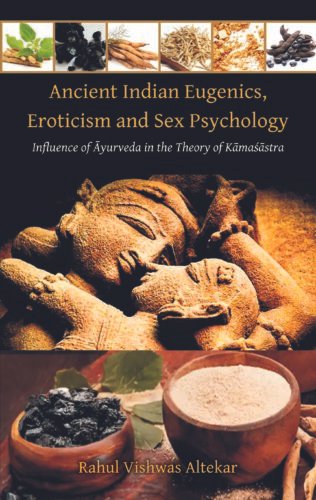
Disproving the overarching perception of sexual relationships and copulation postures, this book treats KÀmaœÀstra from different perspectives such as behavioral & sex psychology, its conceptual origination, later evolution and its parallel learning from °yurveda. It delves into how °yurveda exerts structural, conceptual, prescriptive and symbolic influences on KÀmaœÀstra, while highlighting the concept of aÈÇÀôga KÀmaœÀstra.
“KÀmaœÀstra invokes keen interest among people of all strata, all countries and makes a reflective impact on their lives. Although there is plethora of literature on the subject, most of them deal with the sexual relationships and copulation postures, relegating its genuine scientific relevance. For many, the KÀmasÂtra is the only authoritative text on KÀmaœÀstra, ignoring a large volume of texts on psychology, sociology and eugenics under its wide gamut. Based on the extensive research and empirical inputs from °yurveda practitioners, this book addresses the missing links of KÀmaœÀstra and the strong influence of °yurvedic principles on its overall framework. It discusses discoveries from the multiform temple structures at KhajurÀho, the Sun Temple at KoõÀrk and ŒrÁ Chenna- Keœava SwÀmy Temple at BellÂr among many others. These evidences endorse the theoretical views gathered from the pertinent literature. It helps readers understand KÀmaœÀstra concepts from different perspectives, especially the elaborations on various Àsanas.
The book deals with core °yurvedic themes like homeostasis, balance in physiological constituents, anatomy, digestion and metabolism, diet, lifestyles, therapeutical approach, virility, aphrodisiac and pharmacology, eugenics, surgery, materia medica, medication and medicinal plants that are presented as an extension to the KÀmaœÀstra theory.
The volume highlights the concept of aÈÇÀôga KÀmaœÀstra dealing with characteristics of the male, female, venue of copulation, rituals to yield progeny, prosperity, protection and happiness from KÀmadeva, significance of the right copulation mood and energy, food and sense consumption, and instruments. It should entice students, researchers, °yurvedic practitioners, and others alike.”
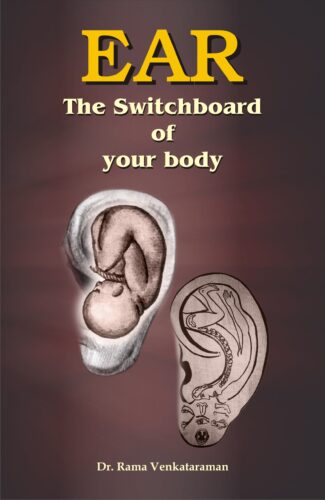
This attempts to examine how the corresponding ear-points can help in improving the body’s working. It also provides detailed explanations with tables and diagrams of various disorders that can be cured by using the acupuncture methods.
Among the many reflexology parts a human body has, ear is most unique and significant.
Ear is rich in nerve endings and placed at outer rim of the skull, vibrating with energy. In the ear body’s representation corresponds to a child in mother’s womb, curled in an upside down manner. Because of this the ear cure mechanism is also effective in curing problems originated in the womb.
Ear acts like the body’s radar reflecting its working precisely. When these reflex points are activated the sensitive ear nerves carry the return cure reflexes as electromagnetic waves to the organs and body parts, the body responds quickly and diseases are cured.
This is a wonderful effective nature cure through its remote control operation.
This book will serve as a guide to variety of readers especially those interested in traditional medicine and healing systems.
Nature’s gift to mankind.
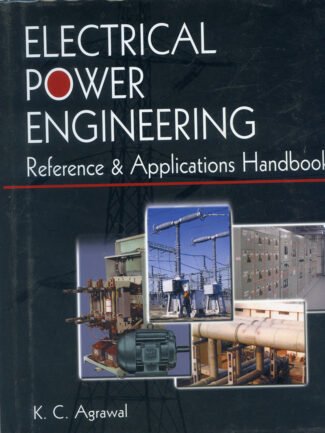
This is a unique handbook for inhouse training courses in electrical industries, power generation, transmission, etc. The book has special thrust on energy conservation, pollution control and space saving in consonance with the latest global requirements.
SOME UNIQUE FEATURES
Special thrust on energy conservation, pollution control and space saving in consonance with the latest global requirements.
Special coverage on earthquake engineering and tsunamis. Seismic testing of critical machines.
In all there are 32 Chapters and 2 Appendices. Each chapter is very interesting and full of rare information.
The book contains 5 parts and each part is a mini-encyclopedia on the subjects covered.
Many topics are research work of the author and may have rare information not available in most works available in the market.
Tables of all relevant and equivalent Standards IEC, BS, ANSI, NEMA, IEEE and IS at the end of each chapter is a rare feature.
APPLICATIONS OF THE HANDBOOK
For professionals and practising engineers:
As a reference handbook for all professionals and practising engineers associated with design, engineering, production, quality assurance, protection and testing.
Project engineering, project design and project implementation.
A very useful book for every industry for selection, installation and maintenance of electrical machines.
For practising engineers, it would be like keeping a gospel by their sides.
For Inhouse training programes:
A unique handbook for inhouse training courses for industries, power generating, transmission and distribution organizations.
For students and research scholars :
As a reference textbook for all electrical engineering students in the classrooms and during practical training. It can bridge the gap between the theory of the classroom and the practice in the field. A highly recommended book for all engineering colleges worldwide, right from 1st year through final year.
It will prove to be a good guide during higher studies and research activities. Subjects like Earthquake Engineering, Intelligent Switchgears, SCADA Power Systems, Surges, Temporary Over Voltages, Surge Protection, Reactive Power Control and Bus Systems etc. are some pertinent topics that can form the basis of their higher studies and research work.
The book shall help in technological and product development and give a fresh impetus to R&D.
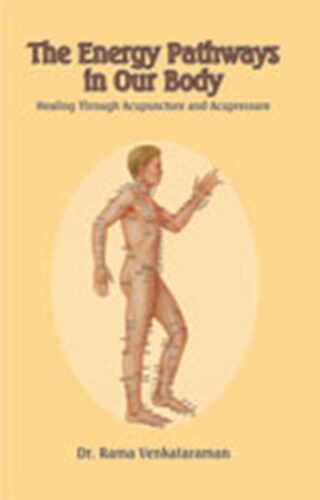
The book speaks about the usefulness and advantages of acupuncture and acupressure therapies. It also attempts to understand the concept of kundalini energy and its association with acupressure.
The Energy Pathways in our Body
Acupuncture and acupressure are drugless therapies that are safe, simple, economical and yet very effective for treatment and prevention of a range of common diseases and ailments. The volume is an attempt to understand acupuncture: its effects and the theory of yin and yang that forms the basis of acupuncture. It examines the causes of diseases and functioning of organs of the body. It discusses the nature of the acupuncture points present in the 14 channels and the way the activation of these points helps in treatment of various disorders in the body. With numerous drawings depicting the various body parts and acupuncture points, it deals with the specific acupuncture points for treating specific tissues. It also notes the symptoms of diseases of different organs.
The book details the advantages of the ancient therapy of acupuncture, especially as it doesn’t have side-effects and can be followed along with other modes of treatment like homoeopathy. There is also an attempt to understand the concept of kundalini energy and its association with acupressure. A list of important instructions for the acupuncture practitioners explains the correct procedures of applying pressure at points. A chapter on case histories mentions successful treatment given to patients with a range of ailments.
The book will be useful to scholars and students of medical science in general but particularly those interested in alternative medicines and medical therapies.
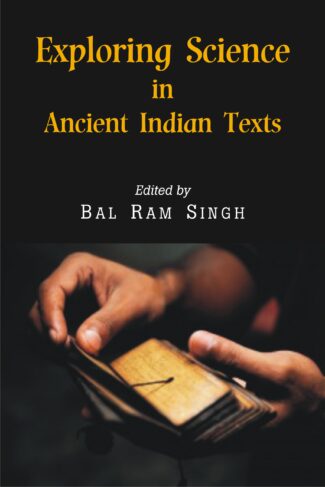
The volume is an attempt to lay down some of the fundamental principles of Vedic traditions and practices for improving the efficacy of modern science. As ancient Indian texts contain many advanced technologies and scientific developments, it is for one’s surprise that what technologies were in use and what scientific developments are relevant in our time.
Philosophical and cultural factors play a significant role in developing scientific theories and interpreting data. These factors are also influential in assessing science and technology. We experience a visible distinction in the philosophy and culture of the West and East, mainly due to geographical and climatic reasons. And this difference reflects in their approach to science and technology too. Modern science has many roots in Vedic and Upanishadic knowledge. For historical reasons or so, this has been deliberately disassociated even from the philosophical bases. Vedic traditions or dharma traditions address many a question that modern science addresses. These include the origin of matter and universe, origin of life, origin of species and evolution, state of consciousness and mind, among others.
This book addresses topics such as the basic premise of scientific approach to examine reality; mathematical and scientific knowledge, derivation, and application of Vedic perspective; and models for current scientific issues with Vedic perspective, and thus covers ideas of matter and universe, consciousness and mind, and fundamental questions of defining and applying science and scientific approaches. It also deliberates on more attractive aspects of Vedic knowledge such as Ayurveda and yoga, which are fast finding base across the globe.
The volume is an effort to lay down some of the fundamental principles of Vedic traditions and practices for improving the efficacy of modern science. As ancient Indian texts contain many advanced technologies and scientific developments, it is for one’s surprise that what technologies were in use and what scientific developments are relevant in our time.
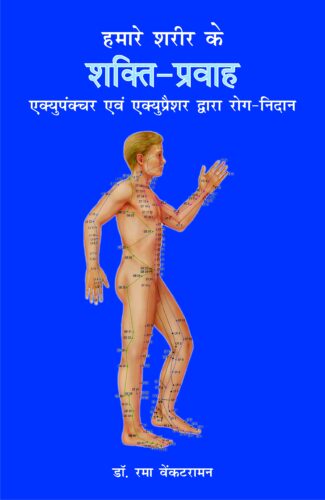
The book speaks about the usefulness and advantages of acupuncture and acupressure therapies. It also attempts to understand the concept of kundalini energy and its association with acupressure.
The Energy Pathways in our Body
Acupuncture and acupressure are drugless therapies that are safe, simple, economical and yet very effective for treatment and prevention of a range of common diseases and ailments. The volume is an attempt to understand acupuncture: its effects and the theory of yin and yang that forms the basis of acupuncture. It examines the causes of diseases and functioning of organs of the body. It discusses the nature of the acupuncture points present in the 14 channels and the way the activation of these points helps in treatment of various disorders in the body. With numerous drawings depicting the various body parts and acupuncture points, it deals with the specific acupuncture points for treating specific tissues. It also notes the symptoms of diseases of different organs.
The book details the advantages of the ancient therapy of acupuncture, especially as it doesn’t have side-effects and can be followed along with other modes of treatment like homoeopathy. There is also an attempt to understand the concept of kundalini energy and its association with acupressure. A list of important instructions for the acupuncture practitioners explains the correct procedures of applying pressure at points. A chapter on case histories mentions successful treatment given to patients with a range of ailments.
The book will be useful to scholars and students of medical science in general but particularly those interested in alternative medicines and medical therapies.
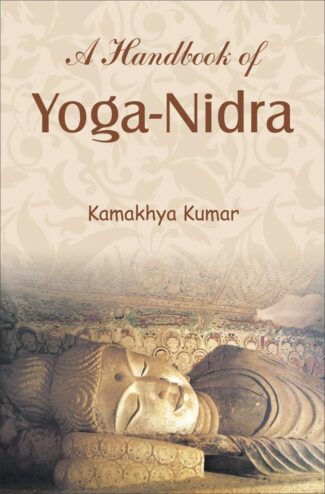
Mental imbalances due to psychological crises are the root cause of many physical and mental diseases. Yoga-nidra is the best therapy to induce complete physical, mental and emotional relaxation. It stimulates sleep in insomniacs and has come very effective in treating pain, neurosis and even disability.
The psychological crisis of this age is one of the severest challenges that human race has ever faced. Mental imbalances and their manifestations in the form of psychosomatic diseases pose serious health threat. To address this challenge, Indian yogis have found a wonderful relaxation technique yoga-nidra. They were fully aware that the inner tensions or imbalances of an individual can be best dealt with inner peace. The yogic texts unequivocally emphasize that peace can only be found within.
This volume deals with varied aspects of yoga-nidra and delves deep into its relationship with the stages of sleep, dream and samadhi. It highlights the topic in such a way that among the numerous relaxation therapies, yoga-nidrà is the best to induce complete physical, mental and emotional relaxation. It peels off the subliminal sheath of conscious mind that covers the inner core of the unconscious mind. Yoga-nidra is a state between sleep and samadhi, a half-sleep, a half-waking state. It removes fluctuations from all planes of mind. It helps insomniacs by stimulating sleep. This title underlines the regular usage of yoga-nidra in treating pain, neurosis and even disability. It also provides the practical utility of yoga-nidra with lots of evidences on the basis of experimental studies. Their references are well mentioned into it, which will help the scholars in their further studies and research.
This book should benefit the patients of insomnia, psychiatrists and all those who want to dwell in the bosom of mental peace, and those who are determined to experience the higher levels of meditation.

Mental imbalances due to psychological crises are the root cause of many physical and mental diseases. Yoga-nidra is the best therapy to induce complete physical, mental and emotional relaxation. It stimulates sleep in insomniacs and has come very effective in treating pain, neurosis and even disability.
The psychological crisis of this age is one of the severest challenges that human race has ever faced. Mental imbalances and their manifestations in the form of psychosomatic diseases pose serious health threat. To address this challenge, Indian yogis have found a wonderful relaxation technique yoga-nidra. They were fully aware that the inner tensions or imbalances of an individual can be best dealt with inner peace. The yogic texts unequivocally emphasize that peace can only be found within.
This volume deals with varied aspects of yoga-nidra and delves deep into its relationship with the stages of sleep, dream and samadhi. It highlights the topic in such a way that among the numerous relaxation therapies, yoga-nidrà is the best to induce complete physical, mental and emotional relaxation. It peels off the subliminal sheath of conscious mind that covers the inner core of the unconscious mind. Yoga-nidra is a state between sleep and samadhi, a half-sleep, a half-waking state. It removes fluctuations from all planes of mind. It helps insomniacs by stimulating sleep. This title underlines the regular usage of yoga-nidra in treating pain, neurosis and even disability. It also provides the practical utility of yoga-nidra with lots of evidences on the basis of experimental studies. Their references are well mentioned into it, which will help the scholars in their further studies and research.
This book should benefit the patients of insomnia, psychiatrists and all those who want to dwell in the bosom of mental peace, and those who are determined to experience the higher levels of meditation.

The author focuses on some of the contemporary scientific ideas vis-a-vis the achievements of old-world Hinduism in cosmogony, astronomy, meteorology and psychology. The book, in the process, unfolds some fundamental Hindu philosophical concepts.
Hinduism is not just a religion. It synonymizes the five-millennia of Indias cultural heritage. Which is unequivocally manifest in the Hindus architecture, sculptural art, music, mythology, Sanskrit literary classics, social institutions, and ethical/legal codes. And also in their complex philosophical systems addressing perpetually baffling questions concerning creation, existence, cosmic consciousness, reincarnation, and the like. Yet, ironically perhaps, not many know about the striking breakthroughs of Hindu sages in astronomy, mathematics, chemistry, medicine, metallurgy, and other ancient-time sciences leave alone a deficient awareness of the monumental treatises of Charaka, Aryabhatta, Bhaskara and Kautilya that still remain as landmarks in the scientific history. Here is a book trying to highlight how Hinduism of yore : both in its motivations and methodology, laid the foundations of modern scientific quest. Drawing on the prodigious mass of Vedic/post-Vedic Sanskrit writings, the author focuses specially on some of the contemporary scientific ideas vis-a-vis the achievements of the old-world Hinduism in cosmogony, astronomy, meteorology and psychology. Contextually, Iyengars book also unfolds the Hindu worldviews of creation, soul and determinism, among other fundamental philosophical concepts. Discerning readers will find Hinduism and Scientific Quest as much a useful read as the scholars of traditional Indian philosophy and history of science.

The author focuses on some of the contemporary scientific ideas vis-a-vis the achievements of old-world Hinduism in cosmogony, astronomy, meteorology and psychology. The book, in the process, unfolds some fundamental Hindu philosophical concepts.
Hinduism is not just a religion. It synonymizes the five-millennia of Indias cultural heritage. Which is unequivocally manifest in the Hindus architecture, sculptural art, music, mythology, Sanskrit literary classics, social institutions, and ethical/legal codes. And also in their complex philosophical systems addressing perpetually baffling questions concerning creation, existence, cosmic consciousness, reincarnation, and the like. Yet, ironically perhaps, not many know about the striking breakthroughs of Hindu sages in astronomy, mathematics, chemistry, medicine, metallurgy, and other ancient-time sciences leave alone a deficient awareness of the monumental treatises of Charaka, Aryabhatta, Bhaskara and Kautilya that still remain as landmarks in the scientific history. Here is a book trying to highlight how Hinduism of yore : both in its motivations and methodology, laid the foundations of modern scientific quest. Drawing on the prodigious mass of Vedic/post-Vedic Sanskrit writings, the author focuses specially on some of the contemporary scientific ideas vis-a-vis the achievements of the old-world Hinduism in cosmogony, astronomy, meteorology and psychology. Contextually, Iyengars book also unfolds the Hindu worldviews of creation, soul and determinism, among other fundamental philosophical concepts. Discerning readers will find Hinduism and Scientific Quest as much a useful read as the scholars of traditional Indian philosophy and history of science.
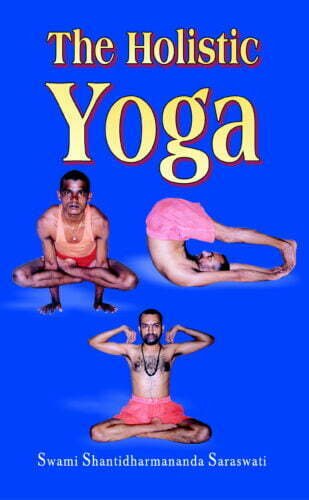
The book presents a study of different types of yoga, examining the theory and practice of yoga in terms of purification of the body and purification of the mind. It explains the way to achieve mental and spiritual yogic excellence through bodily discipline, meditation and yogic trance and asanas.
The book presents a study of different types of yoga as all of them are considered essential at different stages in the path of spiritual evolution: hatha yoga, raja yoga, kriya yoga, japa yoga, laya yoga, kundalini yoga, nada yoga, svara yoga among others. It starts with a background on the meaning and concept of yoga and its benefits and examines the theory and practice of yoga under two broad groups pertaining to purification of the body and purification of the mind, presenting yoga as taught in the Upanisadic texts as well as yoga as scientifically researched and practiced in the modern day by yogic masters. Under these groups are covered the science of the human body and its cleansing, postures, breathing and gestures and the different techniques meant for achieving spiritual and mental excellence through desireless actions, concentration fixation, meditation and yogic trance. Written in an easy-to-understand language, the work abounds in quotations and other references to the sacred scriptures and famous ancient works on yoga to provide a broad base and comprehensive treatment of the subject. The book will prove extremely relevant to all those simply interested in yoga or involved in studies on yoga, whether they are beginners, scholars or spiritual aspirants.
Modern science has created around a million words in European languages. As India gained independence it became imperative to create terms for administration, industry, humanistic and scientific disciplines. It was a continuation of a long tradition of linguistic creativity. This book is a collection of the writeups of Prof. RaghuVira who was the prime `maker of Indian words’. The source languages of European terminologies Greek and Latin shared the same grammatical basis of word-formation from roots with prefixes and suffixes like Sanskrit the historical source language of India. Language as a process of evolution, creation of Japanese and Chinese terminologies, the linguistic reform in Turkish, rejuvenation of Hebrew, the development of Hindi as the official language, principles of coining Indian terms, the art of translation, improvement in Indian terms due to scientific advances, and several facets of the linguistic revolution in newly liberated countries can be read in this book in the very words of Prof. RaghuVira the creator of India’s macrocosm of linguistic evolution. The book is a thrilling narrative of India’s logos, with parallels from other land
| There are no products |